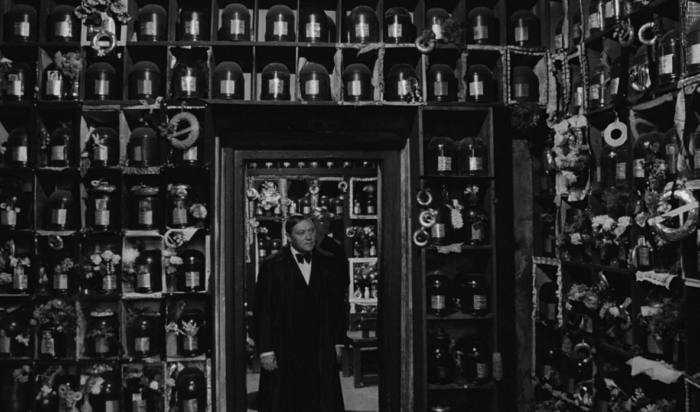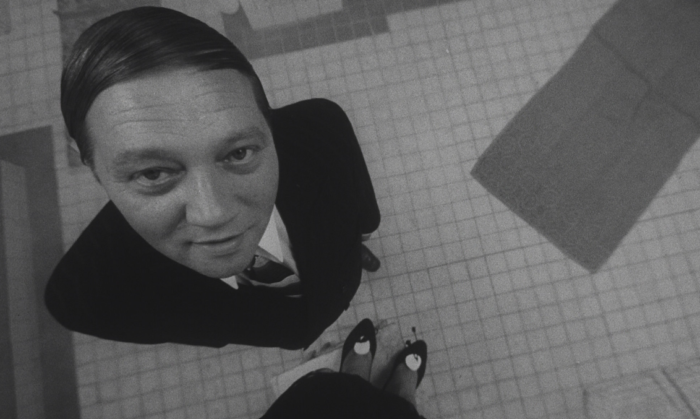
I’m a simple man. I see a movie labeled as “horror” in the Criterion Collection, I watch. What makes The Cremator a horror film? Going in I assumed it was because… well, cremation. What I didn’t know until now is that the scariest thing about The Cremator isn’t cremation, it’s Nazis. God, I hate those fuckers. This film hates Nazi’s too and shows us why they suck through one man’s slow descent into madness.
Set in 1930’s Czechoslovakia, The Cremator is the story of Karel Kopfrkingl (Rudolf Hrušínský), a cremator and family man living in Czechoslovakia against the rise of the Nazi party. Though skeptical of the Nazi’s, Kopfrkingl claims he is a true Czech with “only an ounce of German blood” and is therefore incorruptible. Politics aside, there’s really only one thing Kopfrkingl is truly devoted to… cremation.
To Kopfrkingl, cremation is setting a soul free. An admirer of Buddhist principles, Kopfrkingl believes in reincarnation and that this “rebirth” is best achieved through immolation, a process he shows us with great precision and care. If you haven’t already caught on, this guy is a sociopath.
Kopfrkingl’s descent into evil doesn’t happen overnight. When he is initially informed about the rising Nazi party by his friend Reinke (Ilja Prachař), he shrugs it off, almost like it’s just a fad. Yet, as time goes on, Kopfrkingl becomes obsessed with the idea that maybe he’s special. At one point, he even has a vision that he is the reincarnation of Buddha and therefore believes the best way to achieve deity status is by joining this supposed new world order.
More than anything, Kopfrkingl is sold on the idea that the Nazi’s run camps where they use ovens to exterminate. All of these ideas become twisted and distorted by Kopfrkingl in a series of monologues that employ surrealist camerawork. Fisheye lens’ anyone? Honestly, I’m shocked this movie isn’t better known but there’s a reason for that.
The film was withdrawn from circulation for two decades due to communist rule over Czechoslovakia. It wasn’t until the Velvet Revolution in 1989 in the country that communism fell and the film again became available. One has to wonder if those years lost from the cinematic landscape hurt The Cremator’s legacy. Thankfully, Criterion came along and added the film to the collection in 2020.
I was blown away by this film. I already knew from some screenshots that this film would at least be visually stunning, but I had no idea it would be so thematically heavy. We’ve seen a lot of movies where the protagonist(s) fight the Nazis, but I can’t recall a lot of movies about a protagonist becoming corrupted by the Nazis.
Rudolf Hrušínský is revelatory in the lead role. You’re never quite sure if you can trust him or if his love for his family is genuine. He’s as charming as he is deceitful and gives us such a multilayered character. This performance, combined with the dizzying photography of Stanislav Milota and ominous score by Zdeněk Liška result in an almost psychedelic experience.
Going in I had to ask myself, “Is this really a horror movie? Or is it just weird enough to be lumped into horror?” Now I can confidently say this IS a horror movie. If I had to compare the film to anything it would be Henry: Portrait of a Serial Killer. Both films are stories where the audience is essentially held hostage by having to reckon with someone on a despicable trajectory. There are no winners in these kinds of movies but they can still teach us valuable lessons.
Also, if I wasn’t clear enough already, “Fuck the Nazis.”



